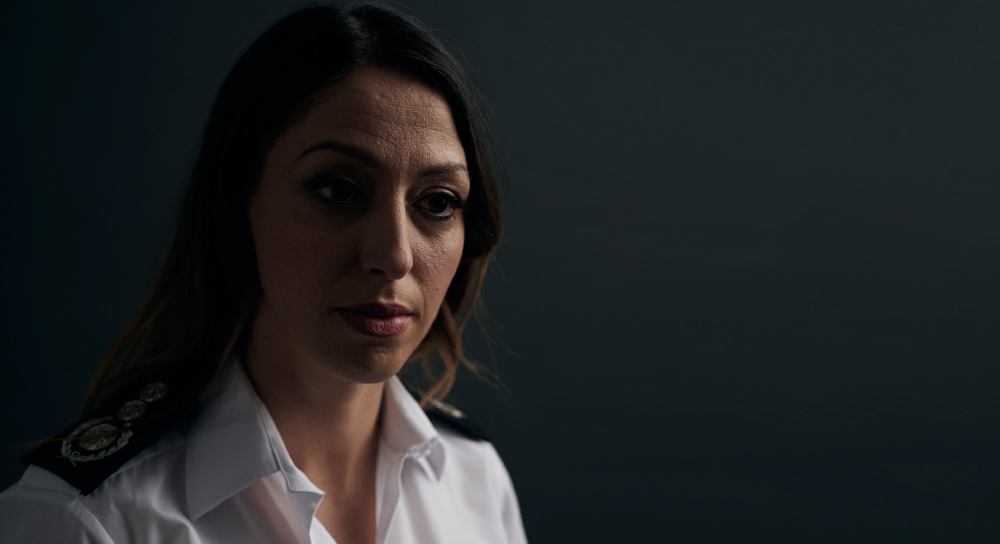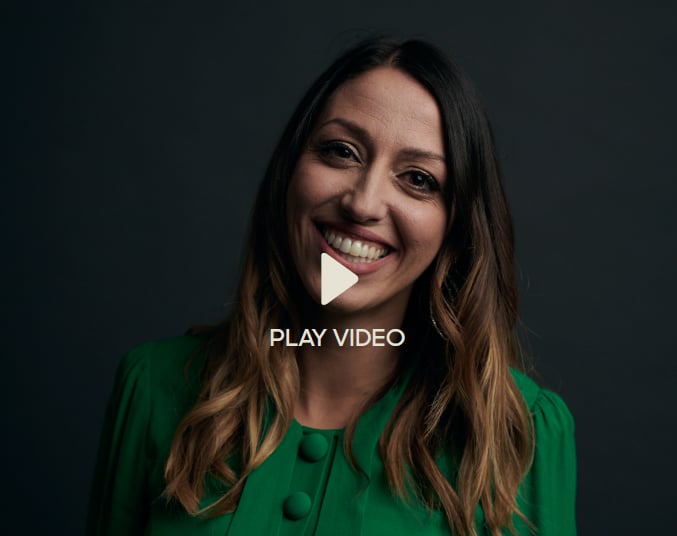Learn how Sabrina Cohen-Hatton turned her life around to forge a senior firefighting career.
Today, Sabrina Cohen-Hatton is one of only six women fire chiefs in the country and a doctor of behavioural neuroscience; at 15, she was living rough on the streets of Newport.
In this write-up from an exclusive video interview with BecomingX, she explains how she turned her life around to forge an exceptional career.
“Your circumstances don’t define you; they don’t determine where you end up, only where you start from,” asserts Sabrina Cohen-Hatton.
“I’ve gone from living in abject poverty and sleeping rough at 15 to achieving the most senior rank in the fire service at 36.”
Cohen-Hatton’s father died of a brain tumour when she was nine years old, bringing her childhood to a swift end.
“He and my mum were blissfully in love; they were great parents,” she explains. “And then when my dad got sick, his business failed, and what we saw over a period of time was the cognitive degeneration that was associated with it.
“Things got really difficult; my mum had a breakdown. We were constantly cold; we were constantly hungry. It was a struggle day to day just to survive. We broke down as a family completely, and I ended up sleeping rough.”
As a 15- and 16-year-old, Cohen-Hatton would often spend the night in shop doorways or in subway tunnels on the streets of Newport, Wales. “I’ve been beaten up more times than I care to remember,” she recalls. “I’ve woken up with drunk people urinating on my sleeping bag. I was attacked once for being Jewish.
“There were times in my life that I was forced to eat out of bins in order to survive. You feel so humiliated; it’s the most dehumanising experience. When you’re sitting at the side of the street, people walk past you like a ghost, like you’re not even there. One teacher crossed the street to avoid me. It was at that point that I knew that nobody cared.”
SABRINA COHEN-HATTON: From homeless teenager to chief fire officer
Determining to change her circumstances herself, Cohen-Hatton continued to pursue her education.
“My choice was to work as hard as I could for as long as it took to be able to change that situation,” she explains. “I’d stuff my uniform in a bag… and get changed in the bus station toilets. So I still went to school and I still did my GCSEs.”
Becoming a Big Issue seller helped her to work her way out of poverty, giving her some much-needed “stability and control”; but she describes it as an uphill battle.
“Getting off the streets isn’t as easy as getting a roof over your head and that’s it. It took me three attempts to escape that life, where I could start afresh, just as me, without baggage or history.”
Becoming a fire fighter
“I never had a childhood dream of being a firefighter,” admits Cohen-Hatton. “It wasn’t something that occurred to me when I was growing up. But when I was experiencing homelessness, it really felt as if every day was the worst day of my life. I know how it feels to be at rock bottom.
“The amazing thing about the fire service is that people trust us to know what to do when they are experiencing the worst day of their lives. I think in a funny kind of way I wanted to rescue people in a way that nobody had been able to rescue me.”
Her first job was as a part-time, on-call firefighter in the South Wales Valleys, where there were 1,700 men to seven women; she suffered sexual harassment and stereotyping.
“I was the first woman at my station and in my division and, initially, not everyone knew how to respond to that,” she says. “People would regularly say things like ‘no offence to you, Sab, we just don’t agree with women in the job. Women will get firefighters killed’. That kind of idea that the package you come in somehow defines what you’re capable of and how good you’ll be is very frustrating.”
However, this was balanced by “some amazing experiences. I’ve been able to push myself to do things I never thought I was capable of and that’s the most important thing,” she says.
Applying behavioural neuroscience to firefighting
Cohen-Hatton’s defining career moment came when she was called to an incident in which a firefighter at a neighbouring station had been severely burned; there was a one-in-four chance that the victim was her own husband.
Finding him safe and well, she experienced an “overwhelming sense of relief” combined with “an overwhelming sense of guilt; I felt that, by so badly wishing it not to be Mike, I was wishing it on someone else,” she explains.
“To find a way of coping with it, I started to look at what we could do about firefighter injuries. What I found really shocked me: 80% of accidents across all industries happen because of human error.”
She began studying psychology, doing a degree followed by a PhD in behavioural neuroscience, “looking at the mechanisms that might bias the decisions that we make, to learn more about how we can try to reduce human error”; people laughed at her plans to apply her learning to the fire service, but she “carried on anyway”.
“As I’ve progressed in my career — through to a command role — I think the ability to get there takes the ability to fail repeatedly and still get back up and carry on and try again and again,” she says. “There are going to be people who tell you you’re never going to achieve it. But if you know you can, and if you have a passion to do something, do it anyway.
“I don’t think I would be who I am, doing what I’m doing, if it hadn’t been for those experiences. It’s my history, regardless of how palatable it is. Being open about that, being honest about being vulnerable and owning those vulnerabilities has been incredibly powerful. So although I don’t want anyone else to go through it, I don’t think I’d change a thing now.”

















